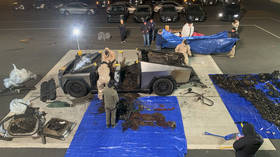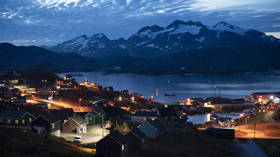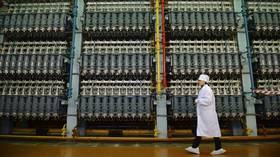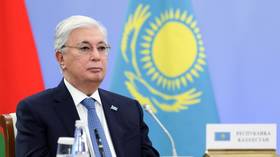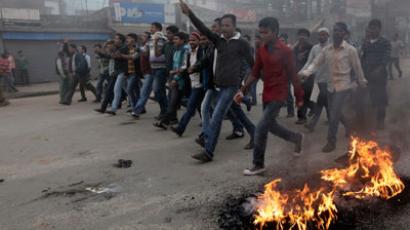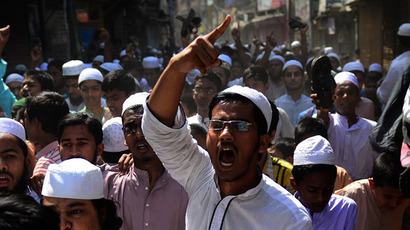Deadly anti-blasphemy protests in Bangladesh prompt national shutdown
Opposition parties in Bangladesh have called a two day national shutdown, following fierce clashes between security forces and crowds of Islamists that left dozens dead according to official reports, while unofficial sources talk about hundreds of dead.
Since local TV stations which broadcast the violence, Diganta
Television and Islamic, were taken off the air, there is scarce
information about what is really happening on the ground.
The reports coming from witnesses, social media and blurry mobile
footage suggest that over 400 people have been killed and up to
2,500 injured as the government crushed the protest deploying army
units to allegedly clean the streets after the massacre. These
reports however could not be independently verified.
At least 38 people have been killed according to the AFP and
hundreds more injured leading the police to ban all rallies in the
Bangladeshi capital.
The strike, effective Wednesday is organized by the Bangladesh
Nationalist Party (BNP) and its Islamist allies in protest of
“mass killing” during the clashes on Sunday and Monday
when police attacked a mass rally in central Dhaka.
“We have called two days of nationwide strike to protest the mass
killing of Hifajat-e-Islam workers and supporters on Sunday and
Monday,” BNP spokesman Khandaker Mosharraf told the AFP on
Tuesday.
Meanwhile 194 activists of the Hefajat-e-Islam (Protectorate of
Islam), a hardline Islamic group behind the violence were indicted
by the police.
There are also reports of the government cutting off electricity
and approaching the protesters with weapons.
The government of Bangladesh has rejected the Hefajat-e-Islam
demands and a May 5 deadline to introduce a new blasphemy law,
reinstate the role of Allah in the constitution, make Islamic
education mandatory and ban women from mixing with men.

The violence began on Sunday as some 200,000 Islamist supporters
marched in Dhaka demanding of the government to introduce a new
blasphemy law and execute bloggers whom they accuse of having
insulted the Prophet Mohammed.
Chanting "Atheists must be hanged", activists blocked at
least six highways cutting Dhaka off from the rest of the
country.
On Monday the protests intensified when supporters of the
Hifazat-e-Islam organization lined roads with burning tires,
setting fire to vehicles and storming a police post, igniting
clashes which lasted for more than five hours.
Law enforcement used flash-bang grenades, water cannon, tear gas
and rubber bullets to quell a crowd of at least 70,000 protesters
who responded with force.
"We were forced to act after they unlawfully continued their
gathering at Motijheel. They attacked us with bricks, stones, rods
and bamboo sticks," Dhaka police spokesman Masudur Rahman told
AFP.
Violence also flared up in other parts of the country.
Country’s Information Minister accused the religious institutions
of encouraging "terrorist activities" by sending their
pupils to the rallies.
“The madrassa superintendents who are encouraging their students to take part in terrorist activities will be tried,” Hasanul Haque Inu said.

On Monday, UN chief Ban Ki Moon, encouraged the government and
the opposition to come into terms.
“The Secretary-General calls on all concerned to stop the violence,
to respect the law and to express their views peacefully,” a
statement read.
Overall Bangladesh has been locked in political and secular
division since January, after the government created a tribunal to
investigate crimes during a 1971 war of independence from
Pakistan. Three leading figures have so far been convicted
for their role in during the independence struggle.
The opposition party at the time opposed Bangladeshi
independence from Pakistan in the war and now refuses to
acknowledge its role in the alleged murder, rape and torture during
the conflict.
There is a “proxy war” raging between the opposition and the
government and both sides are using “different pretext to wage
this war,” independent journalist Haroon Siddiqui explained to
RT.
“The government is accused of using the court to get level with
the opposition. The opposition is using Islam and blasphemy to get
back at the government,” Siddiqui says.




